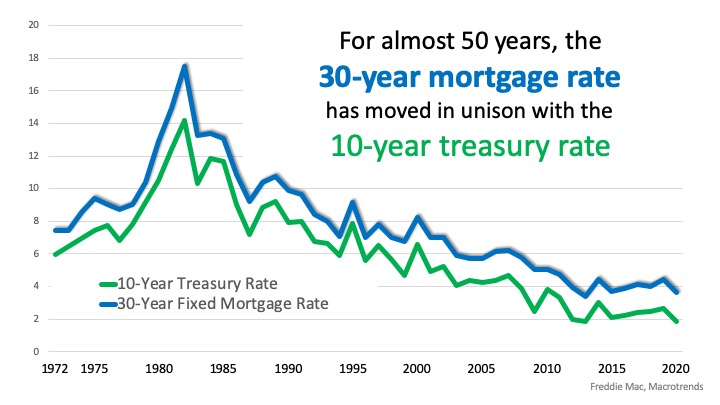
“Amid uncertainty, the house-buying power of U.S. consumers can benefit significantly.”
It’s hard to listen to today’s news without hearing about the uncertainty surrounding global markets, the spread of the coronavirus, and tensions in the Middle East, just to name a few. These concerns have caused some to question their investment plans going forward. As an example, in Vanguard’s Global Outlook for 2020, the fund explains,
“Slowing global growth and elevated uncertainty create a fragile backdrop for markets in 2020 and beyond.”
Is there a silver lining to this cloud of doubt?
Some worry this could cause concern for the U.S. housing market. The uncertainty, however, may actually mean good news for real estate.
Mark Fleming, Chief Economist at First American, discussed the situation in a recent report,
“Global events and uncertainty…impact the U.S. economy, and more specifically, the U.S. housing market…U.S. bonds, backed by the full faith and credit of the U.S. government, are widely considered the safest investments in the world. When global investors sense increased uncertainty, there is a ‘flight to safety’ in U.S. Treasury bonds, which causes their price to go up, and their yield to go down.”
Last week, in a HousingWire article, Kathleen Howley reaffirmed Fleming’s point,
“The death toll from the coronavirus already has passed Severe Acute Respiratory Syndrome, or SARS, that bruised the world’s economy in 2003…That’s making investors around the world anxious, and when they get anxious, they tend to sell off stocks and seek the safe haven of U.S. bonds. An increase in competition for bonds means investors, including the people who buy mortgage-backed bonds, have to take lower yields. That translates into lower mortgage rates.”
The yield from treasury bonds is the rate investors receive when they purchase the bond. Historically, when the treasury rate moves up or down, the 30-year mortgage rate follows. Here’s a powerful graph showing the relationship between the two over the last 48 years: How might concerns about global challenges impact the housing market in 2020? Fleming explains,
How might concerns about global challenges impact the housing market in 2020? Fleming explains,
“Even a small change in the 10-year Treasury due to increased uncertainty, let’s say a slight drop to 1.6 percent, would imply a 30-year, fixed mortgage rate as low as 3.3 percent. Assuming no change in household income, that would mean a house-buying power gain of $21,000, a five percent increase.”
Bottom Line
For a multitude of reasons, 2020 could be a challenging year. It seems, however, real estate will do just fine. As Fleming concluded in his report:
To view original article, visit Keeping Current Matters.
Why You Don’t Want To Skip Your Home Inspection
Skipping a home inspection is a risk that could cost you a lot more than just time.
The #1 Thing Sellers Need To Know About Their Asking Price
A great agent will use real data and market trends to make sure your house is priced based on what your specific home is valued at today
The Truth About Newly Built Homes and Today’s Market
Like anything else in real estate, the level of supply and demand will vary by market; some markets have more, some less.
Paused Your Moving Plans? Here’s Why It Might Be Time To Hit Play Again
With inventory still almost 23% below the pre-pandemic norm, well-priced homes are selling.
House Hunting Just Got Easier – Here’s Why
Over the past few months, the number of new listings, or homes that have recently been put on the market for sale, has been steadily rising.
Buyers Have More Negotiation Power – Here’s How to Use It
Negotiating is a complex process. Lean on your agent for expert advice about what’s realistic to ask for and what’s not.







.jpg )
